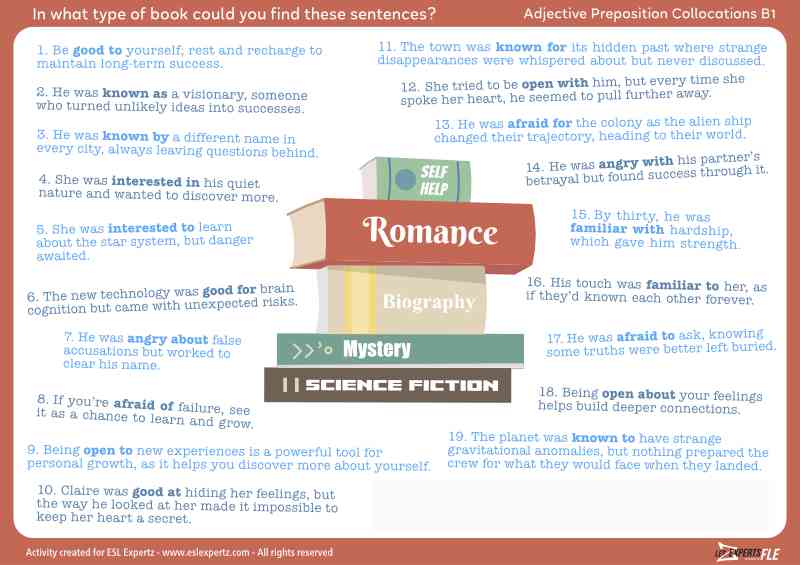
Which Book? Adjective-Preposition Collocations for Intermediate Students
Students match sentences taken from one of the 5 types of books in the center while discovering or mastering adjective preposition collocations for intermediate students. In the activity, each adjective has multiple preposition collocations, so students can see in context how changing the preposition can change the meaning.
Time to Master Adjective Preposition Collocations for the Intermediate Level!
This isn’t just your ordinary “Match the correct collocation” activity like our Me Neither! Adjective-Preposition Collocations for Beginners activity. And it’s even more advanced than the Normcore for A2 Adjective-Preposition Collocations. This is for our intermediate students to discover some nuance, or practice it. It could also be a good review for your advanced students, too.
On the worksheet are 19 sentences that could have come from a book. Each one could have come from one of the 5 genres you can see in the middle. They also each contain an adjective-preposition collocation used at the intermediate level, with each adjective having 2 or more different preposition collocations. Here, students will see what a big difference changing a couple letters can really make!
For example:
11. The town wasknown forits hidden past where strangedisappearances were whispered about but never discussed.
vs.
19. The planet wasknown tohave strangegravitational anomalies, but nothing prepared thecrew for what they would face when they landed.
The goal is for students to see these differences in context, and thus, begin to master them. Students can organize the sentences individually, in pairs or in small groups. Go through the answers as a class, and discuss the differences between the collocations. E.g. Can you explain the difference between “open with” and “open to”?
To take things a step further, prolong the activity, or assign homework, by asking students to use their new collocations to write sentences for each genre. Then, students can do the activity again as a class while using their classmates’ sentences as examples. That way it can act as a writing activity, allowing students to correct each other’s work, too.
Do you like this format, but aren’t worried about adjective preposition collocations for intermediate students today? Check this one out focusing on past continuous / past simple / when / while:
Reviews
It takes a team of 13 to create and produce this material. In order for that to continue, please think about purchasing your own subscription to ESL Expertz and encourage your colleagues to do the same. We appreciate your confidence and support!

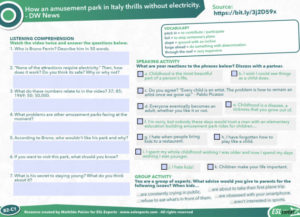
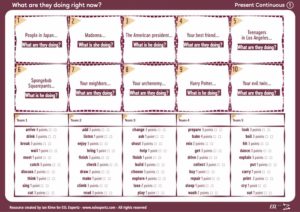
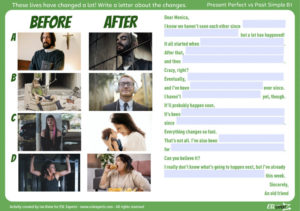

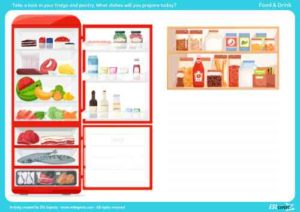

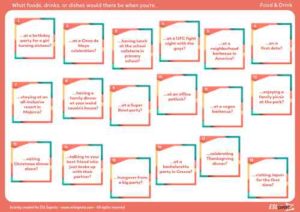
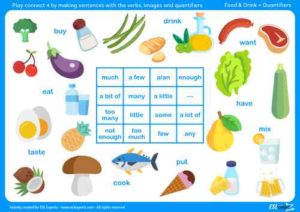
There are no reviews yet.